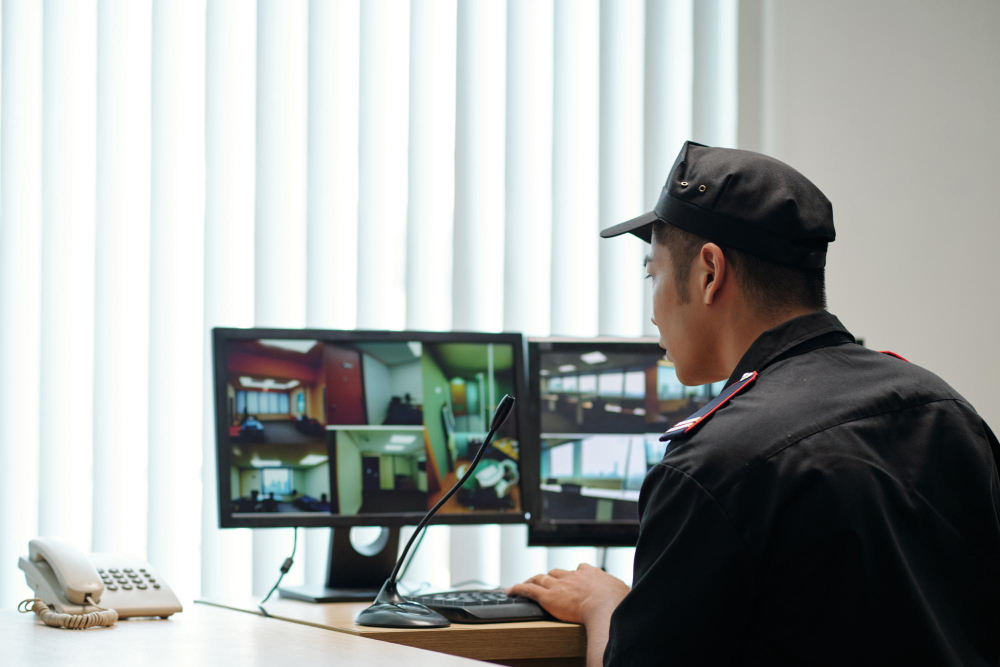Minutes
Free Consultation
Call Us Now!
404-876-7273Minutes
Call Us Now!
404-876-7273
Whether you're operating a small business or managing a large corporate facility, understanding the logistics behind office security will help you make informed decisions that minimize risk and support day-to-day operations.
In this article, Global Bureau of Security & Investigations looks into office security logistics to help you understand how a well-planned security strategy can protect your people, property, and sensitive information. From access control systems and surveillance technologies to on-site security personnel and private investigators, each component plays a key role in creating a secure and efficient workplace.
Whether you manage a corporate headquarters, a small business, or a shared coworking space, the need for security is universal. The goal is not only to deter theft or vandalism but also to create a safe environment where employees and visitors feel protected. A strong security logistics plan covers everything from entry points and surveillance systems to emergency response protocols and internal threat mitigation.
Controlling who can enter your building—and specific areas within it—is one of the foundational elements of office security. Access control systems may include key cards, biometric scanners, PIN pads, or mobile access via apps. These systems track entry activity and allow you to monitor traffic patterns and identify unusual behavior.
CCTV cameras strategically placed around entrances, exits, hallways, and common areas help deter criminal activity and provide valuable evidence if an incident occurs. Modern systems can include remote monitoring, motion detection, and even AI-driven alerts that notify staff of suspicious activity in real time.
In many cases, having trained security officers and private investigators on-site is essential for both prevention and rapid response. These professionals can manage front desk check-ins, conduct regular patrols, monitor live feeds, undertake private investigations in Brookhaven, and handle confrontations or emergencies as they arise. Their presence also provides a visual deterrent to potential wrongdoers.
A good visitor management system logs all non-employees entering the premises. This may include digital check-ins, temporary access badges, and pre-registration for scheduled visits. It helps maintain accountability and ensures that only authorized individuals are allowed into sensitive areas.
Security logistics must include a clear, practiced response plan for emergencies, whether it’s a fire, medical issue, or active threat. This involves training employees, maintaining emergency supplies, and ensuring clear communication channels are in place.
While often handled by a separate department, physical and digital security must be aligned. Server rooms should be physically secured, and surveillance equipment should be protected from hacking. Integrated systems can also automate alerts, combining access logs with cybersecurity protocols for a comprehensive overview of potential vulnerabilities.
Every office has unique risks based on location, industry, and size. That’s why security logistics should never follow a one-size-fits-all approach. A professional assessment can help determine what systems, personnel, and policies make the most sense for your environment.
Looking for a trusted firm offering dependable security services? Are you in need of private investigation service? Look no further than Global Bureau of Security & Investigations. Some of the services we offer include armed personal protection, private firearms training, armed security services, private investigation, and more. We have over 30 years of experience in providing a comprehensive range of security services to various clients. Our team comprises licensed and experienced security specialists drawn from various law enforcement fields. Reach out to Global Bureau of Security & Investigations to schedule a consultation.
Read what our happy clients say about our professional and trusted security services.